When thinking about hair care, you might wonder if black people can get dandruff. The answer is yes, dandruff can affect anyone, no matter their hair type or skin color. It’s mainly caused by a fungus called malassezia that grows on the scalp.
To fight dandruff in black hair, knowing the causes, symptoms, and treatments is key.
For Black individuals, treating dandruff often means using medicated shampoos and keeping the scalp healthy. To prevent dandruff, wash your hair often and choose the right hair care products. It’s important to understand how dandruff relates to black hair to find the best ways to treat and prevent it.
Key Takeaways
- Dandruff is a common scalp issue that can affect anyone, regardless of their hair type or skin color.
- Can black people get dandruff? Yes, dandruff in African Americans is a common issue.
- Remedies for dandruff in Black individuals often involve using medicated shampoos and maintaining good scalp health.
- Dandruff is mainly caused by an overgrowth of the fungus malassezia, which naturally grows on the scalp.
- Understanding the connection between dandruff and black hair is key to finding the right treatment and prevention strategies.
- Regular washing with medicated shampoos and using the right hair care products can help prevent dandruff.
- Maintaining good scalp health is essential to preventing dandruff and other scalp issues.
Can Black People Get Dandruff? Understanding the Basics
Many people wonder if dandruff can affect Black hair. The answer is yes, dandruff can happen to anyone, no matter their hair type or skin color. To understand dandruff in Black hair, knowing the science is key. It’s caused by a fungus, sensitivity to hair products, and a dry scalp. You can find more about dandruff treatment for Black hair and its causes.
Managing dandruff in Black hair requires special care. Afro hair tends to be drier and more prone to breakage, which raises the risk of dandruff. Regular scalp cleansing and moisturizing are key to keeping the scalp healthy and reducing dandruff. The LOC method (Liquid, Oil, Cream) is recommended for keeping Afro hair moisturized.
Some people think dandruff in Black hair comes from poor hygiene or poor health. But dandruff can affect anyone. It’s important to know the causes of dandruff in people of color to manage it well. By understanding dandruff and taking steps to manage it, you can keep your scalp healthy and your hair looking great.
- Regular scalp cleansing every 7-10 days
- Moisturizing Afro hair properly to reduce breakage
- Avoiding harsh hair products and insufficient scalp hygiene
By following these tips and understanding dandruff, you can keep your scalp healthy and your hair looking its best.
Unique Factors Affecting Dandruff in Black Hair

When looking for dandruff solutions for Black men and women, it’s key to understand the special challenges. Black hair, often curly or coily, can be harder to keep moist and dandruff-free. Using heat styling tools or harsh chemicals can make dandruff worse.
To prevent dandruff in darker skin tones, you need a gentle hair care approach. Start by using soft hair care products made for your hair type. Keeping your scalp clean and avoiding dryness-causing styling methods is also important.
Some important things to think about when stopping dandruff in black hair include:
- Avoid harsh hair care products that take away natural oils
- Choose gentle styling methods that don’t dry out or break hair
- Keep your scalp clean and moisturized for health
By considering these points, you can lower your chance of getting dandruff and keep your scalp healthy. Always pick gentle hair care and styling methods that fit your hair type.
Treatment Options for Black Hair and Scalp
There are many ways to treat dandruff in Black hair. You can use remedies for dandruff in Black individuals like medicated shampoos. These products can stop malassezia growth and lessen inflammation.
Medicated shampoos often have zinc pyrithione, ketoconazole, and selenium sulphide. These ingredients fight off dandruff-causing fungi and ease symptoms. For natural remedies for dandruff in Black hair, coconut oil, tea tree oil, and olive oil are good. They moisturize and soothe the scalp.
Medicated Shampoos and Solutions
Medicated shampoos and solutions are great for treating dandruff in Black hair. They control malassezia growth and reduce inflammation.
Natural Remedies for Black Hair
Natural remedies like coconut oil, tea tree oil, and olive oil are helpful. They moisturize and soothe the scalp, easing dandruff symptoms.
Professional Treatment Options
Professional treatments like scalp treatments and hair masks offer deep moisturizing. They help control dandruff symptoms and promote healthy hair growth.
| Treatment Option | Benefits |
|---|---|
| Medicated Shampoos | Control malassezia growth, reduce inflammation |
| Natural Remedies | Soothe and moisturize the scalp |
| Professional Treatment | Intense moisturizing and nourishing benefits |
Prevention Strategies for Healthy Scalp Management

Managing dandruff in Black hair needs a full plan. This includes daily hair care, protective styles, and what you eat and do. Keeping your scalp healthy is key. Wash and condition your hair often, and use gentle products that moisturize.
Some important daily hair care tips are:
- Wash your hair at least once a week to keep it clean and moisturized
- Choose a gentle shampoo and conditioner that fits your hair type
- Stay away from heat styling tools and harsh chemicals that dry out your scalp
Protective styling is also vital. Avoid tight hairstyles that can irritate your scalp. Use a wide-tooth comb to detangle gently. And, pick hair products with fewer harsh chemicals. These steps help prevent dandruff and keep your scalp healthy.
What you eat and how you live also matter. A diet full of omega-3s, zinc, and vitamin B is good for your scalp and hair. Drinking plenty of water, managing stress, and sleeping well also help. By adding these prevention tips to your daily life, you can manage dandruff in Black hair and prevent it in darker skin tones.
| Prevention Strategy | Benefits |
|---|---|
| Daily hair care routines | Helps maintain good scalp health, reduces irritation |
| Protective styling considerations | Prevents dryness and breakage, minimizes irritation |
| Dietary and lifestyle factors | Promotes healthy scalp and hair, reduces stress and inflammation |
Conclusion: Taking Control of Your Scalp Health
In conclusion, dandruff can affect Black individuals just like any other hair type. But the causes and treatments might be different. By understanding the science and the unique factors for Black hair, you can keep your scalp healthy and itch-free.
Start a gentle hair care routine and use products made for Black hair. Also, look at your diet and lifestyle to see if they’re causing scalp problems. With the right steps, you can manage dandruff and keep your scalp healthy. Remember, your hair shows your overall health, so take care of your scalp.

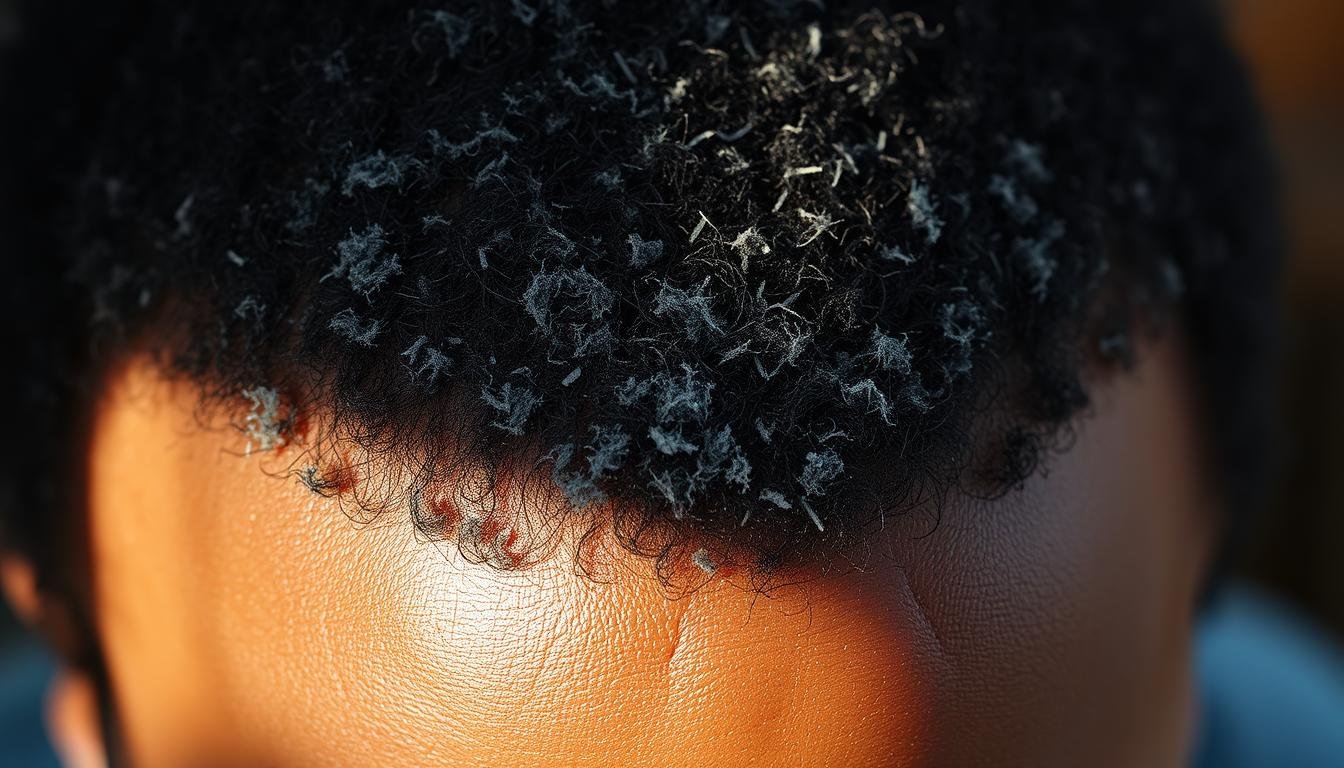

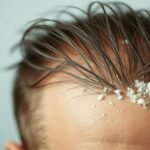
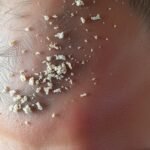
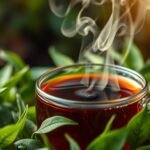

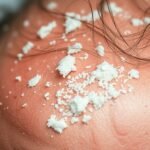
Guys, ever thought about why were racializing dandruff? Isnt it more of a hair type issue rather than skin color?
Interesting, but why arent we talking about the impact of diet on dandruff? Isnt that just as important, if not more?
Interesting read but isnt it a bit racial to assume dandruff is exclusive? Isnt dandruff more about scalp health than skin color?
Interesting article, but arent we all human? Isnt it a bit odd to segregate dandruff by race? Just food for thought, folks!
Dandruff isnt about race, its about scalp health. Its science, not segregation.
Interesting read! But isnt it strange how we segregate dandruff? Isnt it more about hair type than race? Just my two cents.
Interesting read! But arent we overthinking the basics? Dandruff is about scalp health, not race. Shouldnt we focus on individual care routines instead?
Well, Ive got a question. If dandruff is about the scalp, not the hair, why are we differentiating treatment by hair type? Just a thought.
Interesting read, but isnt it high time we focused on finding a universal remedy for dandruff rather than color-specific solutions? Just a thought.
Interesting piece, but why not focus more on universal dandruff treatments? Isnt segregating hair care inadvertently promoting racial divide? Just food for thought.
Universal treatments often overlook unique hair needs. Isnt neglect just as divisive?
Interesting read but isnt the real question why were still racializing dandruff? Isnt it more about hair type than skin color? Just my two cents!
Interesting read but why single out Black Hair? Isnt dandruff a universal hair issue? Seems like a case of over specialization to me.
Interesting read! But isnt dandruff more about scalp health than hair type? Why do we keep racializing every darn thing? Just wondering…
Just curious, isnt dandruff universal? Why are we racializing a scalp condition? Isnt everyones scalp pretty much the same?
Interesting article, but isnt dandruff more about scalp health rather than hair type or color? Isnt that a universal issue?
Interesting read! But why not focus more on universal solutions for dandruff, rather than segregating it by race? Lets unite against dandruff, folks!
Interesting read, but why wouldnt black people get dandruff? Skin issues arent color exclusive. Is there an underlying presumption here?
Interesting read, but isnt it odd how race is the focus? Dandruff is universal, right? Can we talk about nutrition instead?
Interesting read, but why segregate dandruff? Isnt it universal? Also, why not focus more on prevention than treatment? Just a thought.